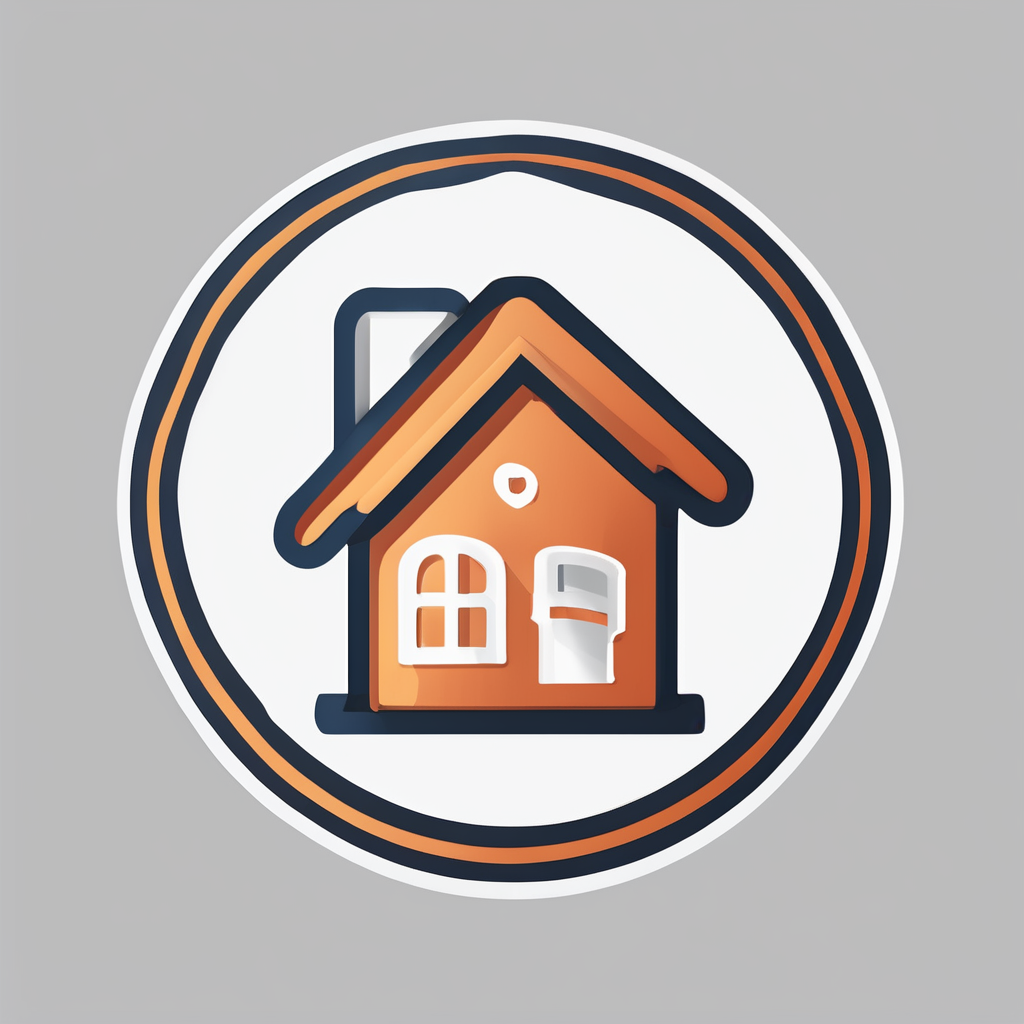Understanding Fixed-Rate Mortgages
When considering a fixed-rate mortgage, it’s crucial to understand its core characteristics. Unlike variable-rate options, a fixed-rate mortgage maintains the same interest rate throughout the loan’s lifetime. This offers unparalleled stability because monthly payments remain constant, making it easier for homeowners to manage their long-term budgeting.
Advantages of Fixed-Rate Mortgages
The primary advantage of opting for a fixed-rate mortgage is predictability. Borrowers can confidently project their financial commitments without worrying about potential payment fluctuations due to interest rate changes. This predictability simplifies financial planning as homeowners can reliably budget around their monthly mortgage obligations without surprises.
Avez-vous vu cela : Unpacking the UK”s Housing White Paper: Key Insights for Aspiring Property Investors
Disadvantages of Fixed-Rate Mortgages
Despite their appeal, fixed-rate mortgages aren’t devoid of drawbacks. One notable downside is the possibility of higher initial rates compared to variable-rate mortgages, especially when interest rates are low at the onset. Additionally, fixed-rate mortgages offer less flexibility; if market rates drop, homeowners are locked into their original rate unless they choose to refinance, which can involve additional costs and a lengthy process.
Understanding both the advantages and disadvantages of fixed-rate mortgages allows potential homeowners to make informed decisions that align with their financial goals and risk tolerance.
En parallèle : Unlocking Profitable Opportunities: Essential Insights for Investing in Student Housing in University Towns like Durham
Understanding Variable-Rate Mortgages
Variable-rate mortgages, also known as adjustable-rate mortgages (ARMs), offer flexibility by allowing the interest rate to adjust periodically based on market conditions. The initial rate is often lower than that of a fixed-rate mortgage, making it appealing for those seeking short-term saving or expecting a decline in interest rates.
Advantages
-
Lower Initial Rates: The initial interest rates are typically more favourable. This can lead to significant savings in the early years, benefiting those with short-term goals.
-
Potential for Savings: If interest rates decrease over time, borrowers might enjoy reduced monthly payments, enhancing savings.
Disadvantages
-
Interest Fluctuations: The most significant risk lies in the rate adjustments, which can result in higher payments if interest rates rise. Borrowers need to be prepared for these fluctuations, which can impact their financial planning.
-
Budgeting Unpredictability: The variability can introduce uncertainty, complicating long-term budgeting. This makes it essential for homeowners to assess their risk tolerance and ability to adapt to potential rate hikes.
Understanding and evaluating the flexibility and potential fluctuations of a variable-rate mortgage is critical. Borrowers should weigh the lower initial rates against the risks of interest variability before committing to this type of mortgage.
Current Market Conditions in the UK
The UK mortgage market is currently shaped by a variety of economic factors that influence both lenders and borrowers. Interest rates are a primary focus, with their fluctuations significantly impacting borrowing costs. The Bank of England’s decision-making on base rates plays a crucial role, imparting direct consequences on mortgage affordability. At present, interest rates remain historically low, although recent talks of potential hikes aim to curb inflation.
Inflation is an important economic factor affecting mortgage rates. As the cost of living rises, lenders are likely to adjust rates to maintain financial balance. This environment pushes borrowers to seek fixed-rate mortgages to safeguard against future increases. Central bank policies also weigh heavily in this scenario, as their strategies to manage inflation, like increasing interest rates, can directly influence mortgage costs.
Current trends in the UK mortgage market show a leaning towards more flexible borrowing strategies. With uncertainties about future economic conditions, borrowers increasingly prefer mortgages offering adaptability. There’s also a noticeable shift towards younger, tech-savvy buyers using digital platforms for managing applications and processes.
In summary, the landscape is complex, with borrowers needing to stay informed about economic dynamics. Understanding the interplay between these factors ensures smarter, more strategic borrowing choices in the evolving UK mortgage market.
Interest Rate Forecasts
In the world of finance, understanding interest rate predictions is crucial for making informed decisions. Experts provide forecasts on how these rates may shift over the coming years, influenced by various market trends such as economic growth, inflation, and policy changes.
Predictions suggest that future outlook for interest rates can vary significantly. For example, when central banks decide to modify monetary policies, this could directly affect both short-term and long-term interest rates. Central banks might increase rates to curb inflation or reduce them to stimulate the economy. This volatility can impact the housing market, particularly in how it influences both fixed-rate and variable-rate mortgages.
The potential changes can make or break a homebuyer’s decision. Fixed-rate mortgages provide stability, as the interest rate remains constant throughout the loan term, despite any fluctuations in the broader market trends. In contrast, variable-rate mortgages carry more uncertainty; their rates might increase, reducing affordability if the predictions show a rise in interest rates. Therefore, accurate forecasting of interest rates becomes a significant aspect of making strategic mortgage choices. By analysing these predictions, individuals can better navigate financial decisions, ensuring that they make the most appropriate choice for their situations.
Financial Implications of Each Mortgage Type
Understanding the financial implications of various mortgage types is essential for successful long-term budgeting and financial planning. Each mortgage product offers different structures of repayment, which affect both monthly payments and total repayment over time.
Fixed-rate mortgages typically allow borrowers to have steady monthly payments, making long-term budgeting easier. However, they might involve higher initial interest rates compared to other options. On the other hand, adjustable-rate mortgages (ARMs) often start with lower interest rates, leading to lower initial payments. However, interest can increase over time, posing potential risks without careful financial planning.
The total repayment amount is a crucial consideration when comparing these mortgage types. For fixed-rate loans, total costs are predictable, depending largely on the loan tenure. In contrast, ARMs could lead to significantly different repayment scenarios based on interest rate fluctuations.
A comprehensive understanding of personal financial situations and long-term goals is vital. This includes evaluating one’s risk tolerance, income stability, and expected time in the home. Understanding mortgage costs deeply can aid in making informed decisions that align with one’s financial roadmap. Ultimately, choosing the right mortgage type requires balancing immediate affordability with long-term financial stability.
Practical Tips for Choosing the Right Mortgage
Selecting the ideal mortgage depends greatly on your personal circumstances and should be approached with informed decision-making. To start, consider whether a fixed-rate or a variable-rate mortgage suits your needs. Ask yourself: “What is my risk tolerance?” A fixed-rate mortgage offers stability with its unchanging interest, while a variable-rate mortgage can fluctuate, which may be risky for some but rewarding for others if market rates decrease.
During the mortgage selection process, conducting a robust financial assessment is crucial. You must evaluate your current finances, potential future changes, and overall economic environment. This helps in understanding how different mortgage options will impact your financial situation over time.
For those unsure of their decision-making ability, consulting with a mortgage advisor or a financial planner is highly recommended. These professionals offer tailored advice by closely examining your individual needs and market conditions. They provide insights into potential risks and benefits, helping you make an informed choice.
Remember, the key to choosing the right mortgage is not just understanding the options available but also aligning them with your financial goals and risk tolerance.




